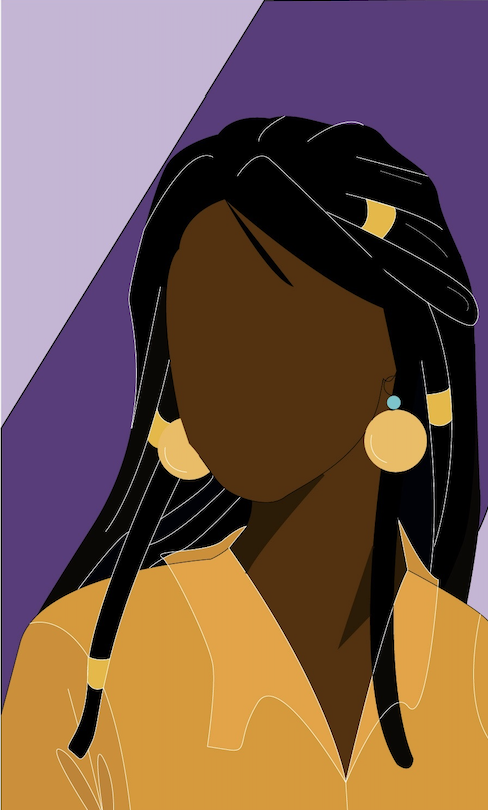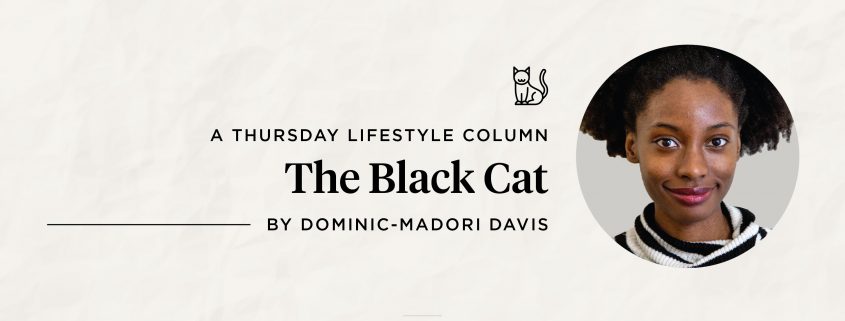The Black Cat: ‘Healthy Hair Suite’ helps customers embrace black hairstyles

Walking into my favorite hairdresser’s salon Monday afternoon, the smell of burning oil and scented hairspray engulfed my senses, reminding me of the days I spent on the carpet of my aunty’s house as she carefully cornrowed my hair. For black women, hairstyling is an intimate experience. From hot combs barely singeing our scalps to our mothers washing out our relaxers in the kitchen sink, our hair lives many lives, sees many faces and continues to be one of the most sacred yet politicized aspects of our cultural and artistic expression.
This month, I decided to trade in my kinky, coily curls, for a straight, hot-pressed look. I do this at least once a year, mostly to gauge how long my hair has grown since I started wearing it naturally five years ago. Like most black women, I grew up suffering from the use of relaxers, a lotion-type cream that contains harsh chemicals to permanently straighten hair. It is rooted in the black community’s attempt to assimilate into American society, by obtaining “desirable” beauty traits in hopes of better social, political and professional treatment.
I vividly remember the pain of having those harmful chemicals burn through layers of my scalp, and remember the damage it did to my hair.
Slowly, I began to realize that Eurocentric ideals for beauty are not only unattainable for black women, but also harmful to our physical and mental health. So, one night, during my sophomore year of high school, I cut all my hair off and defiantly began embracing my natural hair.
My L.A. hairdresser, Eleanor Mott, has taken on an essential role in my hair journey. I go to her at least once a year, but I text her often for tips on how to maintain healthy hair — because good hair is based on health, not texture. Mott runs Healthy Hair Suite by herself out of her home in View Park. She specializes in the restoration and maintenance of curly hair and is responsible for the hair regimen I have today.
Before meeting Mott, I would use hundreds of products, including deep conditioners, co-washes, leave-ins, oils, scalp greases and random hair creams that were on sale at the store. She advised me to trim it down to only six products: a shampoo, a regular conditioner, a deep conditioner, leave-in conditioner, oil and the occasional curl cream on the side. The result was healthy, thriving hair.
Since then, she has been the only person I trust with my hair — the only person I trust to put in (organic) highlights and certainly the only person I trust to hot press my hair, knowing she won’t burn or damage my cuticles. She told me that straightening my hair once or twice a year is very important — especially for people who have thick hair. It is essential to relieve pressure on the roots.
“When it comes to natural black hair, cleansing, shampooing and conditioning techniques and routines are monumental for the hair to stay healthy and beautiful,” Mott said. “And every so often, it is good to blow dry the hair and flat iron it straight to simply get through every single piece of strand on your head, as well as let the scalp get some breathing time. When you have black natural, thick hair, the scalp doesn’t always see sunlight.”
Mott opened Healthy Hair Suite in 2010 to meet the demands of clients who were looking for someone who specialized in healthy natural black hair — not just styles, cuts and color. Professional hair schools do not teach hair stylists how to properly style or manage black natural hair. This was one of the biggest shocks I had when I first wore my hair natural, as I realized that the hairstylist I used to go to could perfectly relax and style my hair, but I had no idea how to wash it or care for it once my hair was natural.
This is where Mott comes in handy.
She opened her first salon above a beauty supply store on Wilshire Boulevard, where she would work the floors in an attempt to promote her own business. She would answer questions from individuals who came in for advice on how to manage and care for their natural curly hair. She said Healthy Hair Suite attracted many clients because almost everyone seemed to need someone who could teach them about proper hair care.
“When it comes to black hair, if a person doesn’t know how to care for one’s hair, it can easily become an unmanicured garden, meaning tangles, breakage, frizz, non-health and shine,” she said. “Even hair loss can result from improper care of the hair and the scalp.”
As more black women begin to embrace their natural hair, they will find that most products they once used will no longer work, and more importantly, a lot of the ingredients they once used will even damage their hair.
“I am very picky about the ingredients in the products I use,” Mott said. “I stay away from anything synthetic-based, too much alcohol, silicones, chemicals. I also recommend supplements for people, special brushes, silk scarves, scalp massages.”
It takes three hours for Mott to straighten my hair. She starts off by shampooing, then moves to a scalp scrub, a deep conditioner, a lukewarm water rinse, an even deeper conditioner, a cold wash and then a low-heat blow dry. For the final step, she flat-irons my hair at 360 degrees.
Once my hair is ready, I see it is longer than it has ever been — reminding me of the days when my hair was relaxed and would constantly break off, never growing past my shoulders. As she cuts my bangs, I have to hold my breath, fearful of losing the length that had taken so long to grow.
I thought about how hair length was something my black friends and I were always obsessed with when growing up because the other girls at our schools always had long, flowing hair, and their hair grasped the praise of those around us. I found, by not adhering to the standards forced upon our culture by society, we and our bodies are able to thrive in the ways they are naturally supposed to. Next time, I tell her, I’m coming for cornrows. I haven’t tried that in years.
Dominic-Madori Davis is a senior writing about black-owned businesses in Los Angeles. She is also the chief copy editor of the Daily Trojan Her column, “The Black Cat,” runs every other Thursday.

